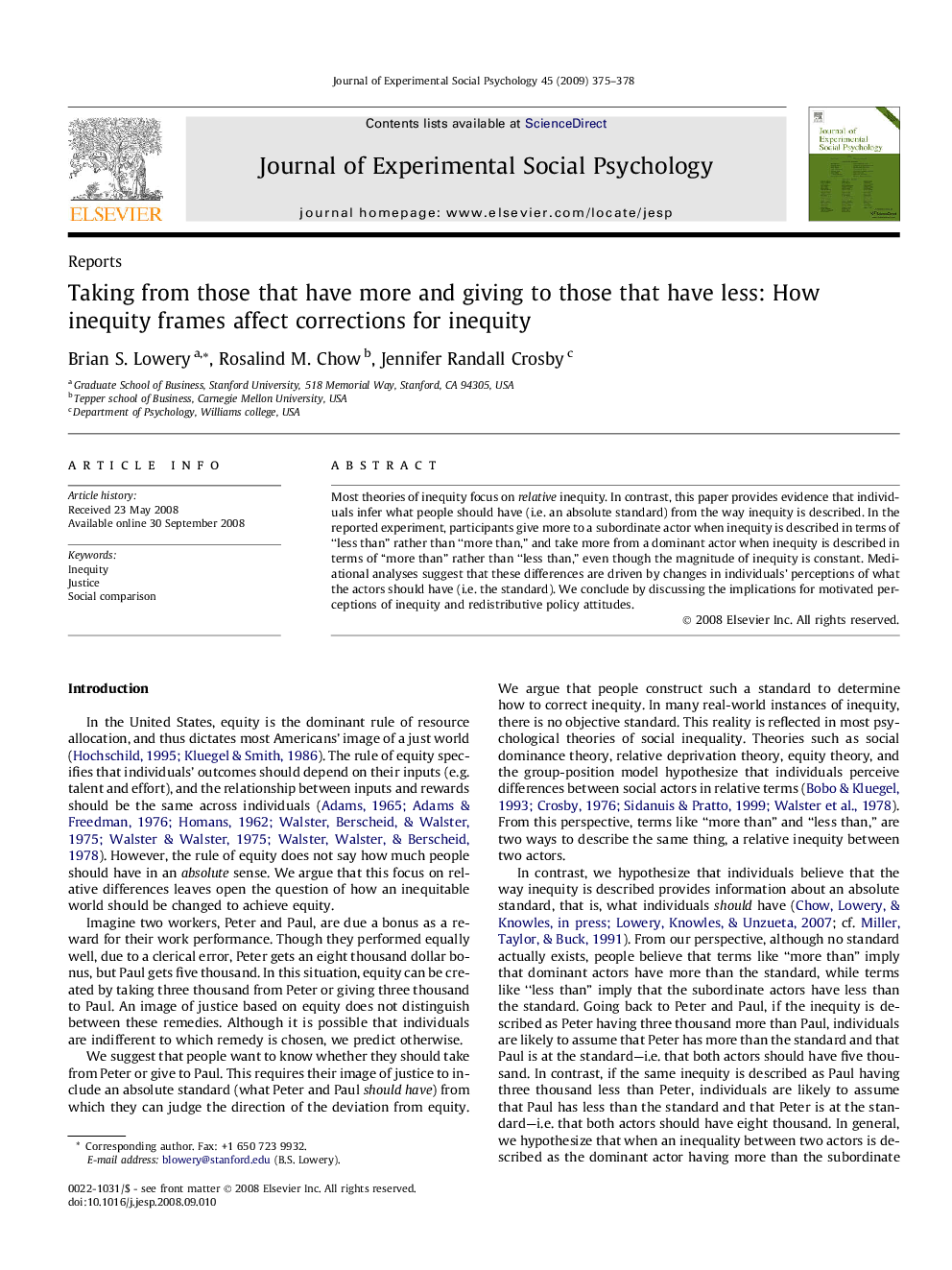| Article ID | Journal | Published Year | Pages | File Type |
|---|---|---|---|---|
| 948796 | Journal of Experimental Social Psychology | 2009 | 4 Pages |
Most theories of inequity focus on relative inequity. In contrast, this paper provides evidence that individuals infer what people should have (i.e. an absolute standard) from the way inequity is described. In the reported experiment, participants give more to a subordinate actor when inequity is described in terms of “less than” rather than “more than,” and take more from a dominant actor when inequity is described in terms of “more than” rather than “less than,” even though the magnitude of inequity is constant. Mediational analyses suggest that these differences are driven by changes in individuals’ perceptions of what the actors should have (i.e. the standard). We conclude by discussing the implications for motivated perceptions of inequity and redistributive policy attitudes.
